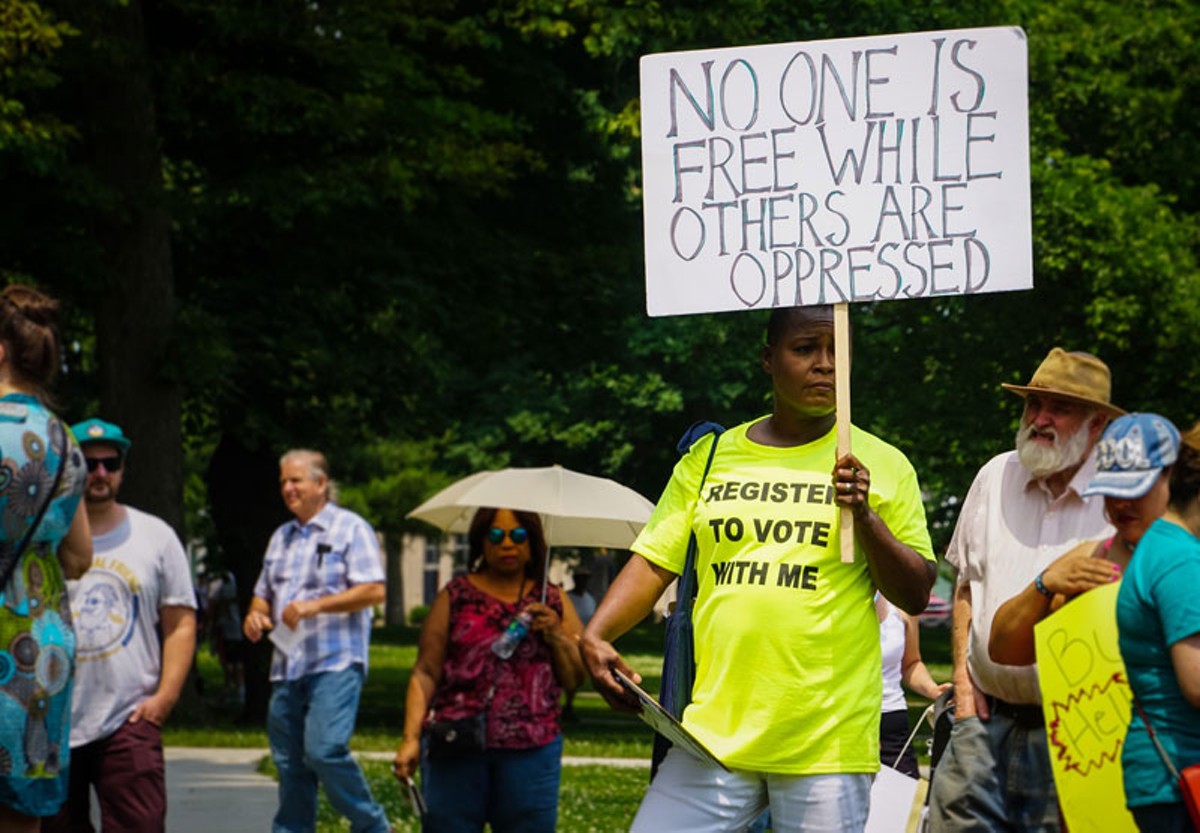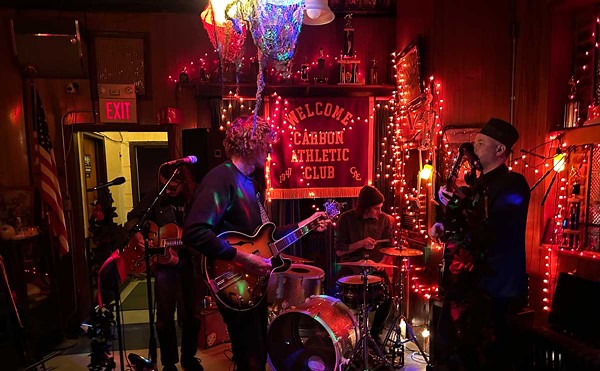We've gotten through an election season that's given us a good indicator of which direction were going in the near future. One thing I'm seeing in politics, at least until politicians become more responsive to the will of the people, is that we will have to use the citizens initiative in order to get things done the way we want them to be done.
There were plenty of initiatives this year that qualified for the ballot, with five of them on the ballot. We ended up voting on just three of them — legalization of recreational marijuana, setting up a nonpartisan committee to create congressional district voting boundaries, and making it easier to register and vote. Every one of those got on the ballot by citizen's initiative. That meant that citizens had to organize and collect enough signatures on petitions and get the state to put it on the ballot.
Each was popular among citizens, but not among legislators — particularly Republicans who held a stronghold on the state legislature. Marijuana legalization is an issue that legislators just didn't want to touch. If anything was going to happen with that anytime soon it was going to have to be pushed by voters. And it was.
But what happened to those other two proposals to raise the state minimum wage to $12 per hour by 2022, and to require employers to grant paid sick time to workers? We didn't see them on the ballot on Tuesday.
That's because back in September the state legislature adopted those proposals and made them law without having a citizens vote on them. That sounds pretty good. This is something citizens want, so the legislature should go ahead and make it law. it seems simple, but that is not necessarily how it goes down.
There were nefarious reasons why the legislature pushed the proposals into law before the election. It came down to the fact that legislators do not want those laws in effect — as well as their corporate buddies.
Well then, why did they pass the laws?
That's because the way the initiative process works is that after a petition is certified, the legislature has 40 days to go ahead and pass it instead of putting it on the ballot. This is where it gets squirrely. If the legislators go ahead and pass the law themselves, it gives them more power to change the law later.
The folks who originally put together the petition initiative process knew that initiatives popular with the people were not necessarily going to be popular with lawmakers. So they put in a provision that made it difficult for lawmakers to change them. What happened this year is that the legislature passed these two laws so that they would have the power to change them later.
Another reason that this Republican-led legislature took the step is that these very popular proposals also could have motivated people to go to the polls, where they could vote about other things they like. Republicans didn't necessarily want a bunch of progressive-minded voters showing up. As we have seen in this political season, Republicans like to keep the voter turnout low — and voting for raising the minimum wage tends to be a Democrat thing.
Right now is the time that changing laws such as the minimum wage initiative takes place in the lame-duck session. The lame-duck session is right after an election but before the new legislature is seated. That way, legislators on their way out the door can do something very unpopular but don't have to sit around and take the heat. The incoming legislators can blame it on those other guys.
The time is now to keep the legislature from undermining the power and intent of laws that were established through initiative but adopted by the legislature. You're not alone: The opposition is organized. We the People, a national political advocacy organization, is taking a lead on making sure that legislators don't subvert the will of the people in this session.
We the People focuses on issues of concern to people of color and low-income people. The organization is building a network of people and organizations across the state to identify and address these issues.
"One of the first fights we're taking on together is fighting against the lame duck sessions," says Maria Ibarra-Frayre, an organizer at the group's Michigan office. "It's been used in the past where really divisive policies have been pushed. Things the people didn't want and the legislature went ahead and passed them anyway. We need to let them know we're watching you. We don't want these policies and we know what's best for us. We think that's going to make an effect."
Ibarra-Frayre references things such as the emergency manager and right-to-work laws that were established during a lame-duck session. She mentions rumors that she's heard about the possibility of restrictive voter ID laws and reproductive rights legislation, as well as aggressive policies that would have a negative impact on energy use and the environment. Those are just rumors at the moment, but history is full of events that started as a gleam in someone's eye.
It was during the lame-duck session in North Carolina a year ago, after a Democrat won the gubernatorial race, that a Republican legislature stripped many of the governor's powers. That was something that was probably not what voters intended.
"We're trying to create a corrective agenda of what we want and deserve in the state," says Ibarra-Frayre. "We're trying to change culture and build power in our community to where people who look like us are the ones making decisions in our community. We want people to feel empowered to take action instead of just defending ourselves."
There is a strange thing that happens with politicians. When they run for office, they accept money for business interests in order to run their campaigns to get people to vote for them. After the candidates are elected, they tend to pay back the people who gave them money, but not so much the people who voted for them. Then, when it's time for reelection, they tell the people that they need more time to get them what they want. However, they take more money from the business interests and owe them again when it comes time for legislating.
That's the cycle that needs to be broken. Citizen initiative processes help to do that. Proposals like the ones we voted on yesterday are huge. Maybe it's the way we have to legislate until politicians figure out who they're actually working for.
Wallerstein speaks
Historical social scientist Immanuel Wallerstein's commentaries are often circulated among progressive activists. Here are a few words of wisdom for a day after the election, no matter what side you're on:
"We must not forget that we are living in the chaotic fluctuations of a structural crisis of the modern world-system," he said. "Wild fluctuations are the basic reality. Nothing lasts too long. Catastrophe today, salvation tomorrow. Catastrophe then again. To be sure, we must still vote as we think best to prevent short-term negatives. But the victories are necessarily short-term — important but never decisive."
Stay on top of Detroit news and views. Sign up for our weekly issue newsletter delivered each Wednesday.







